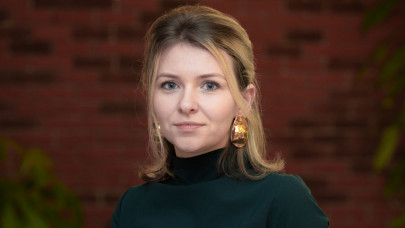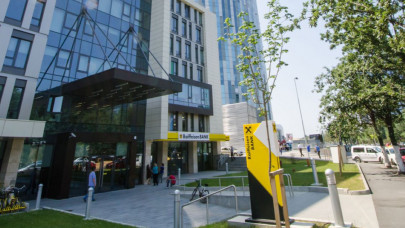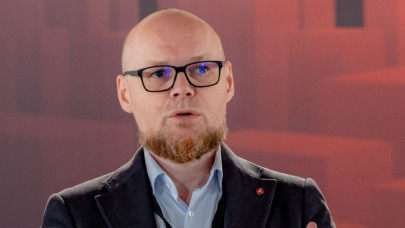In professional and educational environments in Romania, among the most important priority themes of sustainability are: reducing pollution (49%), fighting corruption (32%), equal opportunities (32%), and reducing resource consumption (30%), according to the study "Perceptions among the national population on the priority themes of sustainability", carried out by IZI for the Embassy of Sustainability in Romania, and presented during the debate.
The study also shows that, at the national level, 7 out of 10 Romanians heard in the last year in the media and close circles (family, friends, colleagues) about the reduction of pollution, and 57% of the respondents heard about the reduction of carbon emissions, while what 54% have heard about fighting corruption.
The IZI data study was carried out in May 2023, through the CAWI (Computer Assisted Web Interview) online methodology on a population of 1058 respondents, representative at the urban-rural national level, with men and women aged between 18 and 64, Internet users.
If the priority themes of sustainability are, therefore, relatively known by the employees of organizations and companies in Romania, they still have steps to go in order actually to acquire the necessary skills.
"Our studies show that, currently, organizational cultures are mature in Romania. We have moved from competitiveness to collaboration, people are looking at the common good. What is missing is the willingness of managers to give people a purpose for their work, to move from "we have a task to do" to "we have a purpose". We believe that there is a lot of work in the middle management area, they are the ones who should transfer the organization's vision to the teams in actionable figures that can be taken further to the execution area. Suppose we want to build constructive organizational cultures, with an impact on sustainability. In that case, we must invest a lot in the middle management area", said Marius Decuseară-Brandenburg, Managing Partner, Trend Consult Group.
The Embassy of Sustainability in Romania promotes the economic model in which companies, through partnerships, can solve social and environmental problems without sacrificing economic efficiency (profit). The embassy is a non-profit, private, and apolitical initiative.
"Demography is a topic of concern to us because while the global population is growing and will reach more than 10 billion by 2050, the European population will reach a peak in 2026, after which it will continue to decline, meaning that the availability of labor will fall from 64% in 2019 to 56% in 2070. The European workforce is changing due to digitization and automation and shrinking at the same time, and companies are finding it increasingly difficult to find people with skills suitable", declared Mara Roman-Bănescu, Deputy Head of the European Commission Representation in Romania.
The demand for employees with skills in the field of sustainability is already having effects on educational institutions as well, given that companies are increasingly in need of such specialists, all jobs will adapt to specific rules.
"We created a new master's program, the Sustainable Development of Businesses and Economic Organizations, at the request of the private sector. Among the subjects we teach within this master's degree are "The Basics of the circular economy", "Ethics and social responsibility", and "Strategies for sustainable consumption". The private environment active in the field complements what practice means, and students have become very sought after on the labor market, they are employed immediately, we do not produce unemployed people", explained Cristian Teodor, President of the Foundation of the Academy of Economic Studies.
The main engine of change is represented by young people, who already have a developed set of skills in the field of sustainability.
"I wish CSR departments in companies would no longer exist. Why? Because I believe that sustainability is our responsibility, all of us. I think we should teach it at school, in the business environment, in the circle of friends, and at home and try to develop four meta-skills in young people, such as self-discipline, critical thinking, architect/designer thinking, and autonomy. Already Generation Z was born with this responsibility, to give more back, not to compromise future generations, and to use as few resources as possible. Young people and the new generation have the courage to bring about change," said Claudiu Butacu, co-founder of EFdeN.
The training of young generations in the sense of acquiring sustainability skills and the recalibration, in the same sense, of experienced employees are all the more important as the transition to new business models takes place with rapid steps.
"When we talk about sustainability, many organizations and institutions were caught off guard before the pace and intensity with which the new legislative regulations entered into force. Therefore, at the moment there is a very high demand in the market for specialists and experts in sustainability, and this pressure to quickly identify and attract human resources with the necessary skills also generates risks. Just as there is still no clear definition of what a sustainable/green/ecological product means, we have no clear definition of the competencies a sustainability specialist has. And we are witnessing the emergence of a new form of greenwashing: competence greenwashing, or the practice of intentionally exaggerating a person's knowledge, skills, or expertise on sustainability issues. The simple rebranding of some already established functions - the analyst becomes a sustainability analyst, the risk manager becomes a climate risk manager, is not enough if it is not accompanied by a serious skills upgrade process", explained Andreea Ghiocel, Director of the Reporting Division within The CSR Agency.













